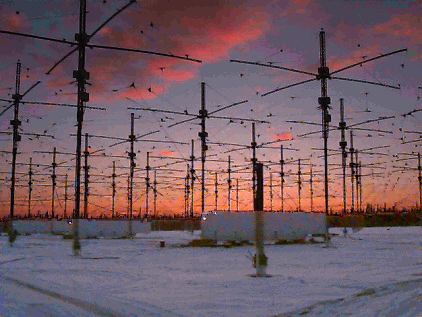Introduction:
- Apologies for the delays in releasing new episodes.
- This episode is an interview with Jonathan Nadeau of Frostbite Systems and a user of the Linux screen-reading program, Orca.
Interview:
- Orca is a screen reading program integrated with the Gnome desktop. It's available for most Linux distributions.
- Russ and Jonathan discuss how a sight-impaired individual might install Linux. There are a couple of Linux distributions that have screen-reader support during the installation: Talking Arch Linux and Vinux.
- Speakup is another accessibility tool, but one that speaks the command line.
- Vinux is an Ubuntu-based Linux distribution with Orca built-in, allowing a sight-impaired individual to install it from the CD. Vinux is the distribtion Frostbite Systems normally installs for it's sight-impaired customers.
- Slackware has a Speakup kernel, and more distributions are including the Speakup module as well. Several distributions can be installed using Speakup. Some instructions are available at the Speakup site.
- Russ mentioned the Quick Learning Techies Show (QLTS) that also occasionally discusses accessibility issues.
- Jonathan discusses the pros and cons of Vinux, as well as his concerns about it being Ubuntu-based.
- Richard asks Jonathan for more details about how Vinux talks a new user through the install.
- If the application is GTK-based, it will likely work with Orca; if it's QT-based, it probably won't work with Orca.
- Ted's software (WA0EIR), including PSK31LX, works via ssh, so the programs are controllable from the command line and would work with the Speakup module.
- Meanwhile, Russ attempts to install Orca during the show.
- Jonathan mentions another podcast he does, This Week in Fedora, and says there is an amateur radio Fedora spin. (I could not find a link to a specific spin of Fedora for amateur radio, but there is a Special Interest Group. -Ed.)
- Frostbite Systems sells desktops and laptops with Linux pre-installed. Customers can choose from Debian, Fedora, Linux Mint, OpenSuse, Ubuntu and Vinux. A portion of each sale is donated back to the distribution chosen.
- Russ asks Jonathan about the hardware he uses in Frostbite systems. All of the laptops/notebooks have all-Intel hardware, while some desktops have nVidia video cards. All are completely Linux-compatible.
- Russ then examines the specifications of some of the Frostbite computers.
- Jonathan also produces several podcasts through Frostbite Media:
- Frostcast: interviews with project leaders of various GNU/Linux and Free/Open Source projects.
- This week in Fedora: interviews with people involved with the Fedora project.
- This week in Debian: interviews with people within the Debian community.
- Orcacast is on hiatus, but should resume in the not too distant future.
Contact Info:
- Contact Richard at kb5jbv@gmail.com, Russ at k5tux@lhspodcast.info, or both at the same time at info@lhspodcast.info.
- Listen to the live stream every other Tuesday at 8:00pm Central time. Check the LHS web site for dates.
- Leave us a voice mail at 417-200-4811, or record an introduction to the podcast.
- Sign up for the LHS mailing list.
- Sign up for the MAGNetcon mailing list.
- LHS merchandise is available at the SHOP! link on Web site. Check out the Badgerwear or buy one of the other LHS-branded items at PrintFection.com/lhs or Cafe Press. Thanks!
- Thanks to Dave from Gamma Leonis for the theme music.
Outtakes:
 We have topped 40,000 downloads! Thanks go out to all of our listeners and live webcast attendees for making Linux in the HAM Shack as popular as it is. Give yourselves a huge round of applause. We're also well on our way to our donation goal of $750 so we can buy booth space and Internet access at the Dayton Hamvention in Dayton, Ohio, in May of 2010. Thank you for all of your donations. Please keep them coming as you're able to send them in!
We have topped 40,000 downloads! Thanks go out to all of our listeners and live webcast attendees for making Linux in the HAM Shack as popular as it is. Give yourselves a huge round of applause. We're also well on our way to our donation goal of $750 so we can buy booth space and Internet access at the Dayton Hamvention in Dayton, Ohio, in May of 2010. Thank you for all of your donations. Please keep them coming as you're able to send them in!